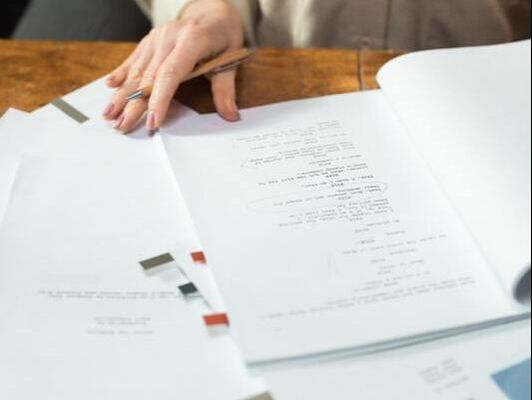|
In 1984 I began teaching in the Honors Program at the University of Delaware. Part of the students’ course work involved writing a paper, which they then gave to a writing fellow for comments. After revising their papers, students gave the “final” paper to me, their professor. I was supposed to comment on their work, but no more writing was required. The second revision was the end, a process I found unsatisfying and often suggested to students that they continue exploring their ideas. Occasionally some were willing to consider further drafts but I never thought to propose additional revisions as a requirement or to use my writing as an exercise in revision. Annoyed by the uninteresting papers I was receiving, I told students in my writing class that there was more to be learned from further exploration, that the required two drafts did not allow them to fully express their ideas, and recommended that more revisions would be beneficial. Students reacted with varying degrees of shock, disbelief, irritation, and in some cases, anger. They were quick to tell me no other professor asked them to do more than two drafts and they saw no reason to do so. I understood they considered revision a punishment so I decided to share my process of revision with them, hoping this would help them see what a powerful and rewarding writing tool it was. I knew that simply telling them about my experience with revision was unlikely to shift their views. They could well say it was my process, not theirs.
At the time, I was writing a Peer Review of my Teaching, Creative/Scholarly work, and Service for the years 1990-1997. As an experiment, I asked if they would be willing to help me revise my Peer Review. Some gasped. Several smirked. Others shook their heads. A few students’ comments summed up what seemed to be the majority view; “Dr. King, why would you want us to comment on your professional life?” “Although we’re your students, it’s not really our business.” “Isn’t it cheating to get help with a document you need to write?” “Cheating? Every writer I know uses editors and shares work with friends to deepen their writing, but your participation is not mandatory and your choice won’t affect your grade.” I made copies of a draft of my Peer Review for every student. “If you prefer not to participate, feel free not to take a copy.” Every student took a copy “Make comments and questions on your copy and leave it under my office door. Sign your name or not. Your choice.” Only a few left comments. Some said they thought what I wrote was fine. It wasn’t. When we next met, I gave out copies of the revision, highlighting new writing that I’d made in response to their comments. I asked if we could take a few minutes to talk about the new draft. Only one student was brave enough to make a suggestion, which I happily took, then waited, hoping more students would participate. Gathering their courage, some timidly offered comments and questions, which I wrote down. “This is great. Thank you so much. I’ll hand out the new draft next class.” So it went until one student said, “Dr. King, I think your Peer Review is finished. And you were right. It’s a whole lot better than the first draft. More detail, better organized, more interesting.” I thanked her and then asked the group if they agreed. They did. Later, after I received the report of my Peer Review from the faculty reviewing it, I told the class what I wrote had been highly praised by the committee. The class cheered as if it were their writing that had been acclaimed. One student commented, “It should get high marks; we worked hard on it.” Another student added, “Who would have thought revising could be so much fun?” Do you share work in process? What is that like for you? How do you know when something is finished?
3 Comments
Phil Eagleton
9/7/2022 09:21:36 am
We share a love of writing. It comes from the inside out. We write because we have a purpose, something to say. We like to share. When we find a poetic or insightful denouement, we finish the piece. Then we go back, revising with the theme in mind, and place a bow on top.
Reply
Marlene Simon
9/7/2022 01:52:12 pm
Dear Nancy, this really brought tears to my eyes. What a brave and selfless thing to do. You put your ego aside and in the service of teaching and making your point, you helped your students to understand something so vitally important in writing. Writing is re-writing. It was really a show, not tell experience. Brava!!
Reply
Claudia Reder
9/8/2022 10:38:20 pm
This was a long story! It is wonderful that you could trust your students and they came through. What a wonderful teacher you are.
Reply
Leave a Reply. |
Monthly StoriesStories inspired by world tales to challenge and comfort. Archives
July 2024
Categories |
Copyright © Nancy King 2020 | Site Design by Angulo Marketing & Design
|
|
Nancy King is a widely published author and a professor emerita at the University of Delaware, where she has taught theater, drama, playwriting, creative writing, and multidisciplinary studies with an emphasis on world literature. She has published seven previous works of nonfiction and five novels. Her new memoir, Breaking the Silence, explores the power of stories in healing from trauma and abuse. Her career has emphasized the use of her own experience in being silenced to encourage students to find their voices and to express their thoughts, feelings, and experiences with authenticity, as a way to add meaning to their lives.
|


 RSS Feed
RSS Feed